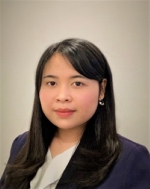Supporting Interactive Learning Methodologies for Human Rights Education in Cambodia Universities
01 Aug 2018, 09:01:19By: Dr. Hem Sras, Dean of the College of Law
On September 12th, 2016, the Dean for the College of Law at the University of Cambodia joined a workshop entitled, "Supporting Interactive Learning Methodologies for Human Rights Education in Cambodian Universities, "arranged by WSD Handa Center for Human Rights and International Justice at Hotel Cambodiana in Phnom Penh. The workshop was facilitated by Melanie Hyde, Director of Cambodia Programs, WSD Handa Center. The remarkable opening speech was made by Francis Huot, Charge Affaires at the Embassy of Canada to Cambodia and was followed by David Cohen, Director of the WSD Handa Center for Human Rights and International Justice and Professor at Stanford University, UC Berkeley, and the University of Hawaii. Both speakers focused on providing assistance to promote human rights and provide trainings on the rule of law in Cambodia.
Many representatives from a number of Cambodian universities and institutions were invited to participate in this workshop. Remarkably, four representatives from three universities and two representatives from human rights institutions were invited to be panelists for the discussion portion of the workshop. Invited representatives include Sras Hem, Dean for the College of Law at the University of Cambodia, Theany Thol, Coordinator of Master's programs at Pannasastra University of Cambodia, Margaret Ryan, Director of the English Based Bachelor's of Law Program at the Royal University of Law and Economics, Ry Noyel, Lecturer at the Royal University of Law and Economics, Visoth Chhay, Director of the Tuol Sleng Genocide Museum, and Andreas Ljungholm, Head of Cambodia Office of the Raoul Wallengberg Institute of Human Rights and Humanitarian Law.
Each speaker introduced the courses and programs that each university or institute offered in relation to human rights, and stressed the significance of human rights training programs for broadening knowledge across the nation. The speakers also focused on using interactive teaching and learning methodologies for conducting training on human rights in the Cambodian context. Speakers raised the difficulties of utilizing interactive learning in Cambodian classrooms, particularly for the 3-hour class sessions. Often, they explained, the class becomes noisy and students quickly become bored or distracted. Sras Hem pointed out that the difficulties of employing an interactive methodology in Cambodia is in part due to the fact that interactive learning approaches follow a Western style using Socratic methods, while Cambodia has traditionally followed a Confucius method in line with Asian culture. The introduction of the Western model in Asia is likely to face some resistance and may take time to become effective. However, it is important to note that the success of introducing interactive teaching and learning in Cambodia also depends on the talent of each teacher to control their class, the class size, level of study of the students, and the student's prior knowledge of the topic.
The workshop proceeded smoothly. At the end of the workshop, the representatives from the institutes and universities in Cambodia and the WSD Handa Center for Human Rights committed to continue collaboration efforts between all relevant stakeholders to complete the important work of training Cambodians on human rights issues and protection efforts.






